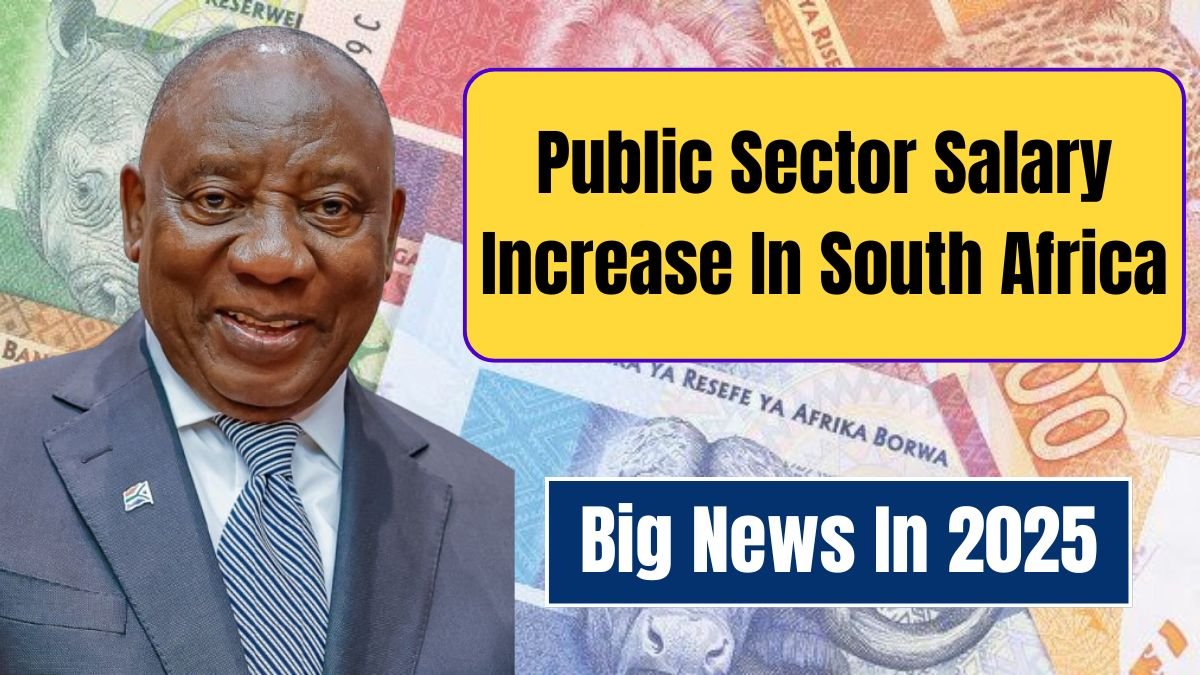South Africa’s public service plays a vital role in the economic life of the nation. Millions are employed in government, arms such as education, health care, law enforcement, or administration. With the cost of living increasing, 2025- public sector salary adjustments have gained speed. Below is an example of what the anticipated salary increases could mean.
History Of Public Sector Salaries
In South Africa, public sector employees have started to traditionally receive annual salary adjustments that keep them afloat with inflation trends and other economic conditions of the country. Such adjustments come after negotiation between government representatives and labor unions to ensure that the employee’s earning potential does not diminish but does also not leave the public purse unsustainable.
In 2024, the public sector increased their workers’ salaries by an average of 7% which is slightly higher than the inflation rate. For the year 2025, both Union and workers are pushing for a much bigger increase in their salaries to compensate for higher living costs.
Anticipated Salary Increase For 2025
Negotiations between the parties are still ongoing; however, initial discussions indicate that government might offer between 6 and 7 percent increase for public workers. Labor unions, on the other hand, are pushing for a double-digit increase citing the following reasons:
- Increasing inflation rates: High rates movers such as fuel, food and housing costs.
- Higher workloads: Especially in the health care and education sectors in the aftermath recovery from a pandemic.
- Economic pressure: Higher utility bills, increased transport costs, and other expenses.
Final Decision-Making Factors In Negotiations
There are several issues that are likely to make an influence in the final decision:
- Economic Constraints: Given the slow growth and high debt levels that have characterized the South African economy, the government shall have to hesitate in offering extravagant increases.
- Union Pressure: Public sector unions, including COSATU and NEHAWU, are in the lead in using their bargaining strength to get better pay for employees at the end of the day.
- Inflation Adjustments: Government pays salary increases in the line of inflation trends so as not to diminish worker purchasing power.
Salary Increase Implications
- A Positive Effect for Employees: Pay raises would be very beneficial to public sector employees in many respects as it would enable them to cope with the rising costs of living and have a higher morale boost,
- multiplying productivity. Economic Ripples: More income in the pockets of workers could also lead to healthy local economies with better purchases of goods and services.
- Budgetary Strain: The government may have to cut budgets in every other sector to be able to pay higher salaries, and this may affect infrastructure and social services.
What Comes Afterward?
Public sector salary increases for 2025 will be finalized soon, and employees and unions will be keeping their eyes out for the latest developments as well as their opportunity to partake in any discussions that could arise.
Conclusion
Such anticipated salary adjustments regarding the South African public sector in the year 2025 will serve as one of the main pillars in order to mold and take care of the economy under a careful shell, not snuffing off the vital avenue of employee welfare while still making due with the ability of the government. It is worth noticing that, as the negotiations go on, whatever goes either way will have severe repercussions for millions of public sector workers and the whole economy.
Also Read: SASSA’s Early R370 SRD Grant Payment: January 2025 Festive Relief
